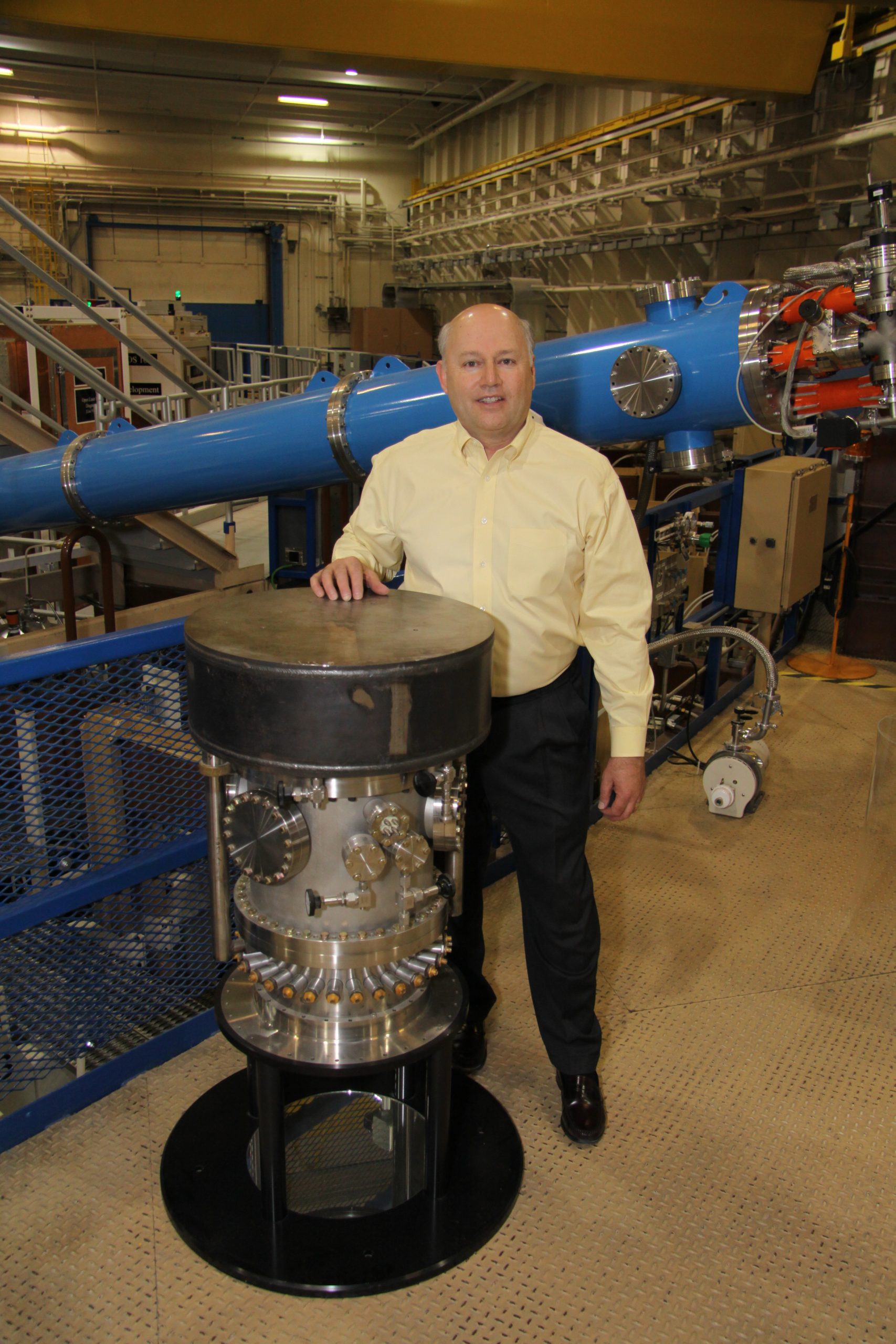ALBUQUERQUE, N.M. — Randy McKee’s passion is engineering excellence. “I’m a process guy,” says the Cherokee Nation member. “I always put that first in anything I do.”
Close behind is his desire to help young people become professional engineers. McKee has spent countless hours mentoring in minority recruitment, graduate and undergraduate programs at Sandia National Laboratories, where he works as a pulsed power engineer. “Connecting back to the community through young people who want to get into science fields is important to me,” he said.

In recognition of his technical excellence and community service, McKee was named 2014 Professional of the Year by the American Indian Science and Engineering Society (AISES). He was honored at the organization’s national conference in Denver earlier this month.
American Indian representation in the sciences
Since 1977, AISES has worked to increase American Indian and Alaska Native representation in science, technology, engineering and math (STEM) fields as students, professionals, mentors and leaders. The group supports and provides STEM educational services at all levels through graduate school. It also offers professional development, mentoring, networking, community service and awards programs.
“It was very humbling to be recognized. I’m honored,” McKee said. “The competition is steep, and Sandia gave me the advantage. I’ve had great mentors and peers who helped me along the way. Reaching up for help is as important as reaching back and giving.”
McKee’s family moved from Oklahoma to Albuquerque, where McKee earned a bachelor’s degree in mechanical engineering and a master’s in business administration from the University of New Mexico. He came to Sandia in 1991 as a contractor in the robotics center and joined the staff in 1995. He worked with Los Alamos National Laboratory in nuclear materials handling using robotics.
In 2000, McKee left Sandia to start the manufacturing division of Ktech Corp., a high-tech engineering firm in the Sandia Science & Technology Park. He returned to Sandia three years later as a pulsed power manufacturing engineer and was promoted within six months to manager of the Pulsed Power Engineering department. “Sandia offers lots of opportunities to succeed and be really challenged,” McKee said. “It’s very difficult work with great rewards and significant impact on the weapons and energy sectors. Engineering excellence is required with all we do here.”
Mentoring minority students in STEM careers
McKee said one-on-one mentoring can make the difference in a young person’s career. “I spend a lot of time really helping them find their way into advanced technical degrees,” he said. “It’s great to see young minds grow into mature scientists over three to five years. They come in as freshmen, doe-eyed and looking at a world of science they can’t comprehend. By the time they leave they can function in a technical environment.”
Much of his effort has been directed at student interns from minority-focused colleges, such as North Carolina A&T State University. “We create an environment at Sandia that keeps them focused on STEM and advanced degrees,” McKee said. “Most of them go on to a master’s degree and Ph.D. Some come back to Sandia and others go out and work at other places. They have been very successful, and that’s the important thing. I tell them that if they want a challenging and rewarding career, STEM will always provide that.”
AISES is the only professional society established by and for American Indian and Alaska Natives that specifically emphasizes lifelong learning and education achievement using cultural aspects with STEM. More than 200 tribal nations are represented within AISES.
